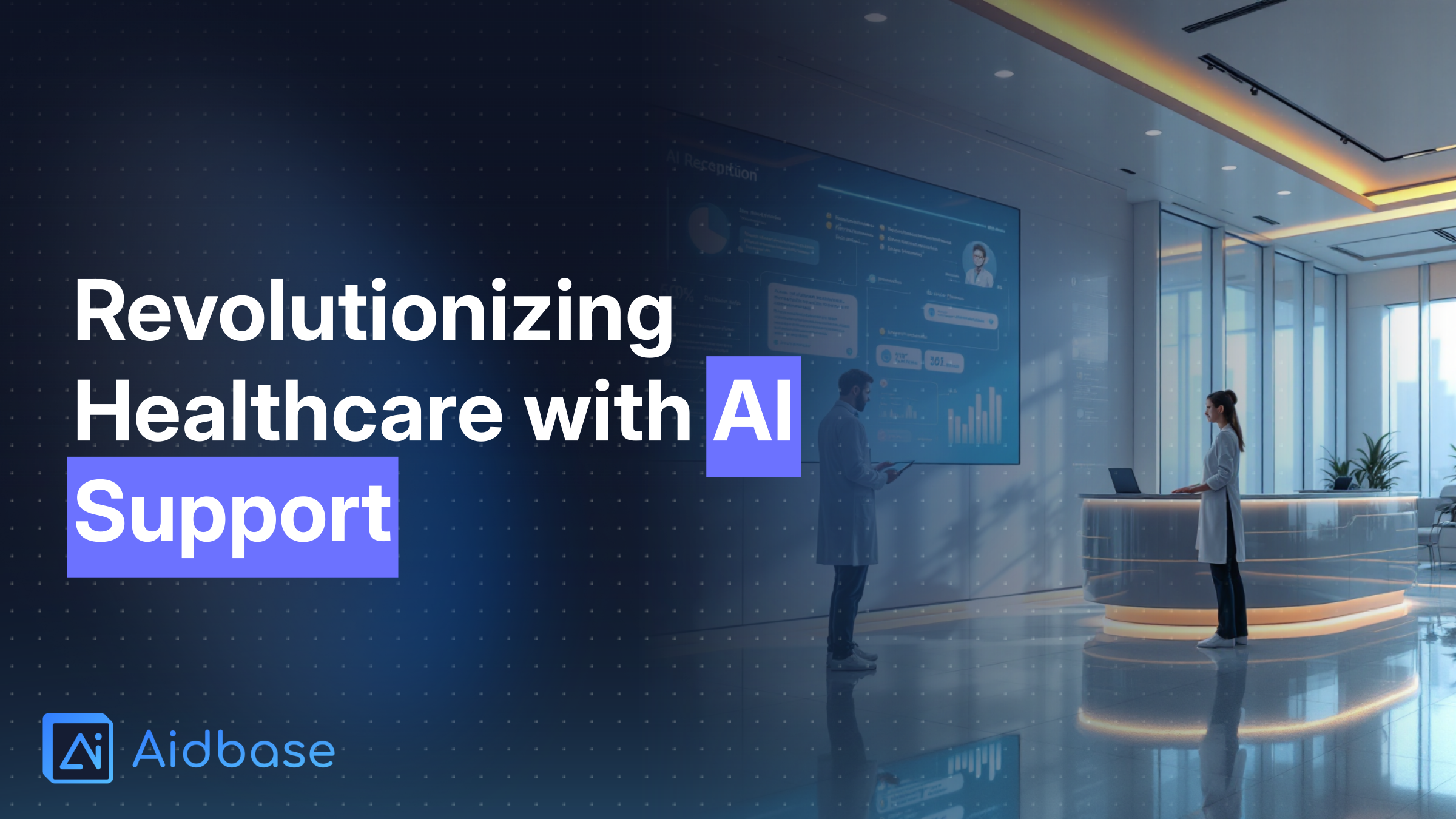In the evolving healthcare landscape, artificial intelligence (AI) is revol...

In today’s rapidly evolving healthcare landscape, artificial intelligence (AI) is transforming customer support by enhancing patient care and streamlining operations. With innovations that range from AI-powered chatbots to automation systems for administrative tasks, healthcare providers are shifting toward smarter, more efficient models. This post delves into how these technologies are being implemented, showcases real-world case studies, and considers both the benefits and challenges that come with integrating AI into healthcare customer support.
AI is revolutionizing customer support across numerous industries, and healthcare is no exception. The sector faces unique challenges, including an increasing number of patient inquiries, the need for quick appointment scheduling, and the administration-heavy workload that many professionals endure. By deploying AI, healthcare providers can free up valuable resources and improve the overall patient experience.
For example, AI chatbots are now capable of handling everything from basic patient questions to guiding complex processes such as explaining treatment plans or interpreting medical documents. This development not only enhances patient engagement but also allows healthcare professionals to focus more on delivering quality care, rather than getting bogged down by routine communication tasks.
Several emerging trends illustrate the growing importance of AI in healthcare:
AI Chatbots for Immediate Responses: One of the most notable trends is the widespread adoption of AI chatbots. These tools can answer patient inquiries in real time and are now a common feature on many healthcare websites.
Streamlined Appointment Scheduling: AI-driven scheduling systems have reduced waiting times and administrative errors. By automating the appointment process, patients experience a smoother journey from inquiry to consultation.
Automation of Routine Tasks: AI is being used to automate administrative duties, reducing the amount of time healthcare workers spend on non-clinical tasks. For instance, AI systems can analyze and process patient data quickly, ensuring that critical information is available to medical staff when needed.
Data-Driven Decision Making: AI technologies leverage large volumes of data to assist in decision-making. This means healthcare providers can predict trends, allocate resources efficiently, and improve overall care coordination.
These trends are supported by multiple recent studies and case applications, paving the way for a more sustainable healthcare future.
A standout example of AI integration is the use of an AI chatbot by a major hospital to support cancer patients. The chatbot, known as "Dave", was designed to provide immediate assistance to patients and their families. It helps users by answering common questions, offering guidance on navigating complex medical documents, and simplifying the process of finding relevant information.
Learn more about how AI chatbots like "Dave" are making a real difference in patient support in this detailed article on Time.
The benefits of AI in patient interactions are manifold:
These enhancements contribute to a more empathetic and responsive healthcare system, which ultimately drives better patient outcomes.
Administrative tasks have long been a bottleneck in healthcare operations, often contributing to staff burnout and a reduction in the quality of patient care. AI tools have proven to be a game-changer in this area.
With tools like Aidbase offering innovative support solutions, the integration of AI in administrative roles is becoming an increasingly attractive proposition for healthcare institutions worldwide.
Despite its many advantages, the adoption of AI in healthcare is not without its challenges:
Addressing these challenges requires a thoughtful and coordinated effort from all stakeholders, including technology providers, healthcare professionals, and regulatory bodies.
Looking ahead, AI is poised to play a critical role in creating a more sustainable healthcare system. The ongoing development and refinement of AI tools promise to:
With continued investment and innovation, the integration of AI into healthcare is set to become even more comprehensive. It’s an exciting time for the industry, as streamlined operations and better patient interactions pave the way for improved overall care.
AI-powered customer support is transforming the healthcare industry, bringing significant benefits to both patients and healthcare professionals. From efficient chatbots that provide instant responses to sophisticated tools that reduce administrative burdens, the impact of AI is far-reaching. As challenges are addressed and technology continues to evolve, the potential for a more efficient, responsive, and sustainable healthcare system becomes ever more attainable. By embracing these advancements, the healthcare industry can continue to improve patient care while ensuring that staff remain focused and engaged in their crucial roles.